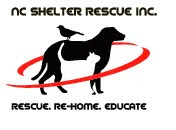Raleigh, N.C. — A North Carolina state lawmaker says he plans to introduce a bill next year that would regulate puppy mills.

First-term Rep. Jason Saine, R-Lincoln, said Monday that he and Rep. Craig Horn, R-Union, have been discussing the matter for the past couple of weeks but that a bust Friday at an alleged puppy mill in Leland prompted him to speak publicly about it.
Brunswick County sheriff's deputies and animal rights advocates rescued 160 dogs, 26 birds and one cat in the raid of the breeding operation inside a doublewide trailer without electricity.
Many of the dogs were matted, caked in filth, covered in fleas, and in need of veterinary care. Some have broken jaws from severe tooth decay.
"No animal should be treated that way," Saine said. "We're in a place in society now where I think, certainly, we can have some reasonable regulation that prevents instances like that happening."
According to the Humane Society of the United States, about half of all states have some type of regulation on commercial breeders.
Animal rights advocates have been trying for years – most recently in 2010 – to get similar regulations in North Carolina, but they have gotten nowhere.
Kim Alboum, director of the Humane Society's state chapter, says that there are regulations for breeders who sell to pet stores or to research laboratories but there is no oversight regarding sales to the general public.
Ninety percent of breeders, she says, sell to the general public through newspaper advertisements and the Internet.
"There are no state standards for breeders. They don't even have to register. Federal laws don't cover most of them, either," she said. "We have to wait until these animals are literally suffering and dying before we can go in. We could avoid so much pain for the animals if we just had minimum standards for them."
Over the past year, there have been nine puppy mill busts in the state – more than any other state in the country, according to Melanie Kahn, national director of the Humane Society's campaign to stop puppy mills.
"Almost every product sold in this country is subject to some sort of regulation, but somehow dog breeding is not," she said.
But dog breeders and groups that represent their interests say that puppy mill regulations could have unintended consequences for legitimate and responsible dog breeders.
The North Carolina Federation of Dog Clubs recently opposed proposed federal regulations on Internet dog sales. Many of its arguments are similar to their reasons for opposing puppy mill regulations.
For example, the federation says, regulations could create unreasonable financial hardships for home-based hobby breeders, who don't generate the same level of income as commercial breeders.
"It would threaten the future of a vast number of small, responsible dog owners and breeders, as well as have long-term implications on our agriculture industry," NCFDC President Peter Lunding said.
Larry Sorenson, of Clayton, has bred and shown dachshunds for 35 years and has been recognized by the American Kennel Club as a breeder of merit. He also says that a poorly written law could end up hurting good breeders.
"We're not opposed to reasonable, enforceable laws," he said. "The problem is in the drafting of the laws – definitions. What's the definition of a puppy mill situation? Is it a number? Is it a procedure?"
A clearer definition of what constitutes a puppy mill, he said, would make him more comfortable with regulations.
He adds that recent busts prove that the state's current animal cruelty laws are strong enough.
"We have had a number of convictions now that people are finding these out, and they are being brought to the light and being eliminated," he said.
But Kahn disagrees.
"We know the current laws aren't working, because we've had so many raids in North Carolina," she said. "All of those raids have been because the situation has risen to the level of animal cruelty. That's why authorities have been able to go in."
In Friday's Brunswick County case, the dogs' owners, Andrew and Amelia Millis, of Wilmington, were arrested on charges of animal neglect and animal cruelty. Both were in the Brunswick County jail Monday afternoon under $1.5 million bonds.
The SPCA of Wake County has taken in 39 of the dogs and puppies seized from the Millises.
Spokeswoman Mondy Lamb said Monday that some of the dogs are facing serious health problems but that others should be ready for adoption in about two to three weeks.
Anyone interested in adopting a dog should contact the SPCA.
- Reporter: Laura Leslie
- Photographer: Keith Baker
- Web Editor: Kelly Gardner
Copyright 2012 by Capitol Broadcasting Company. All rights reserved. This material may not be published, broadcast, rewritten or redistributed.



No comments :
Post a Comment